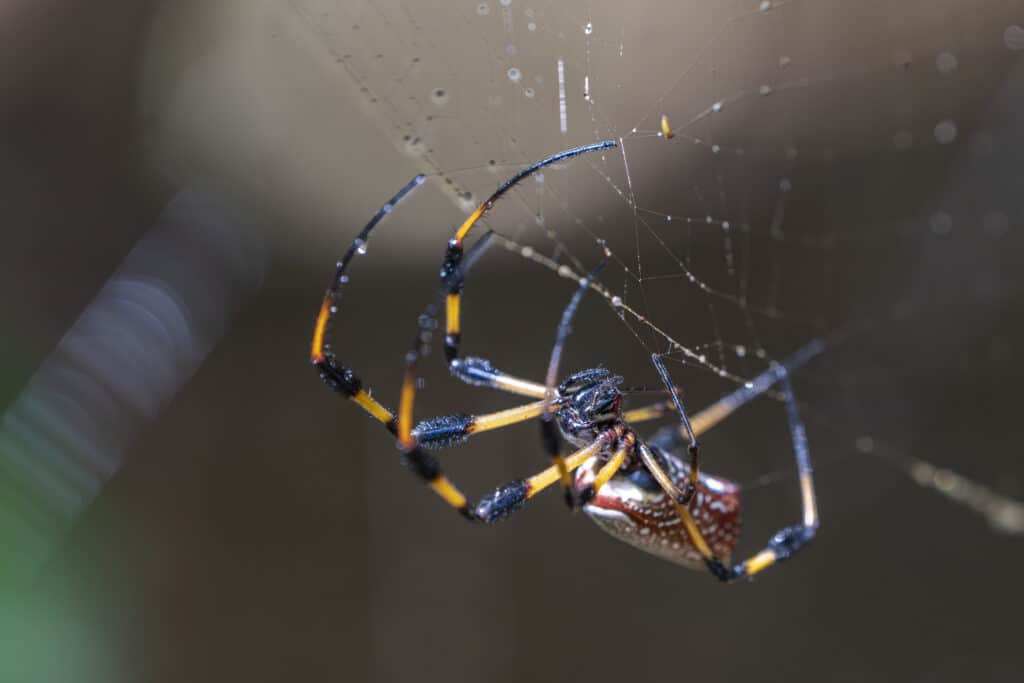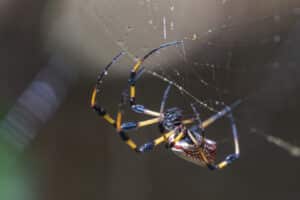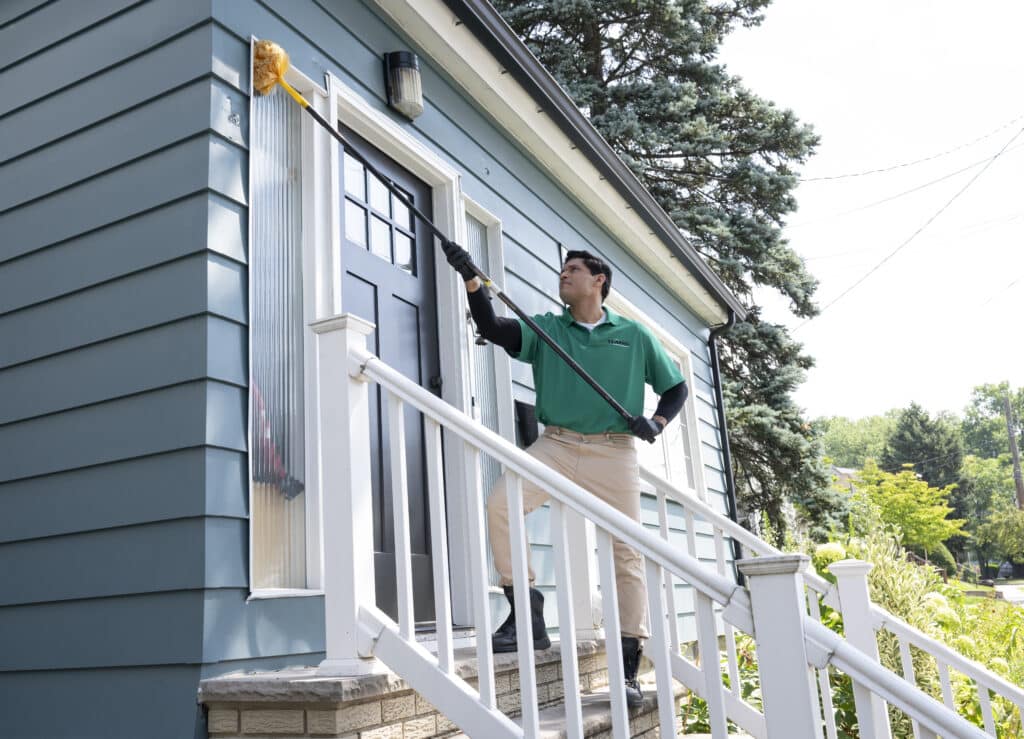

Spider Control Tips for Your Home in the Carolinas
From Charlotte to Charleston, spiders are a common concern for homeowners across the Carolinas. Whether it’s a large wolf spider darting across the garage floor or a web in the corner of the porch, these eight-legged intruders are the last thing you want to share your home with. Here are some steps you can take to get rid of spiders and keep them outside—where they belong.
Step 1: Remove Spider Hiding Spots Around the Home
Step 1: Remove Spider Hiding Spots Around the Home
The first step to spider control is to eliminate the conditions that make your home attractive to them. Spiders love dark, undisturbed areas—both inside and outside.
Indoors, cut back on clutter in garages, attics, basements, and crawlspaces—especially common in older Southern homes.
Outdoors, keep firewood, mulch piles, and yard debris away from the house foundation. Wood piles are a favorite harborage spot for Carolina spiders like the common house spider and southern black widow.
Step 2: Seal Up Entry Points
Step 2: Seal Up Entry Points
Spiders can slip into your home through tiny openings. Older homes throughout North and South Carolina—especially those near woods, water, or farmland—are particularly susceptible to gaps and cracks.
Walk around the exterior of your home and seal:
- Cracks in brick or siding
- Gaps around doors and windows
- Utility line entry points
Caulking and weather-stripping go a long way toward preventing spider entry—and help with general energy efficiency, too.

Step 3: Cut Off THeir Food Supply
Insects are the main reason spiders move in. Ants, cockroaches, and wasps are all part of a spider’s buffet. If your home has insect activity, it’s likely attracting spiders as well.
At Anticimex Carolinas, our general pest control programs are designed to reduce all pest activity, not just spiders—making your home far less appealing to them.
Step 4: Vacuum and De-Web Regularly
Yes, vacuuming really does help. It’s a safe and effective way to:
- Remove live spiders
- Get rid of webs, egg sacs, and spiderlings
- Prevent long-term infestations
In areas like Raleigh, Columbia, and Greenville, where humidity encourages insect and spider activity, regular cleaning—especially in spring and fall—can make a big difference.
And don’t worry: spiders sucked into the vacuum are very unlikely to survive the trip.
Step 5: Use Mosquito-Repellent Products
Try Natural Spider Deterrents (But Don’t Rely on Them Alone)
Some homeowners in the Carolinas swear by natural spider deterrents like peppermint, tea tree, or cinnamon oil. These can be mixed with water and sprayed around windows, baseboards, and entry points.
While essential oils may help to reduce spider activity, they won’t completely eliminate an infestation. For long-term relief, a multi-step pest control plan is key.
The Most Common Spiders in the Carolinas
Not all spiders are created equal. Some of the most common species we encounter in North and South Carolina homes include:
- Southern House Spider
- Wolf Spider
- Cellar Spider (Daddy Longlegs)
- Orb-Weavers
- Black Widow Spider (a dangerous that should be handled professionally)
If you’re not sure what kind of spider you’ve found, our expert technicians can identify it for you during a home pest control visit.
Get Professional Spider Control with Anticimex Carolinas
At Anticimex Carolinas, we understand that seeing a spider indoors—especially one you don’t recognize—can be unsettling. Our local pest professionals are trained to identify, treat, and prevent spider infestations using proven and effective methods tailored to homes throughout the Carolinas. Call Anticimex Carllinas for Pest Control for Spiders today!
